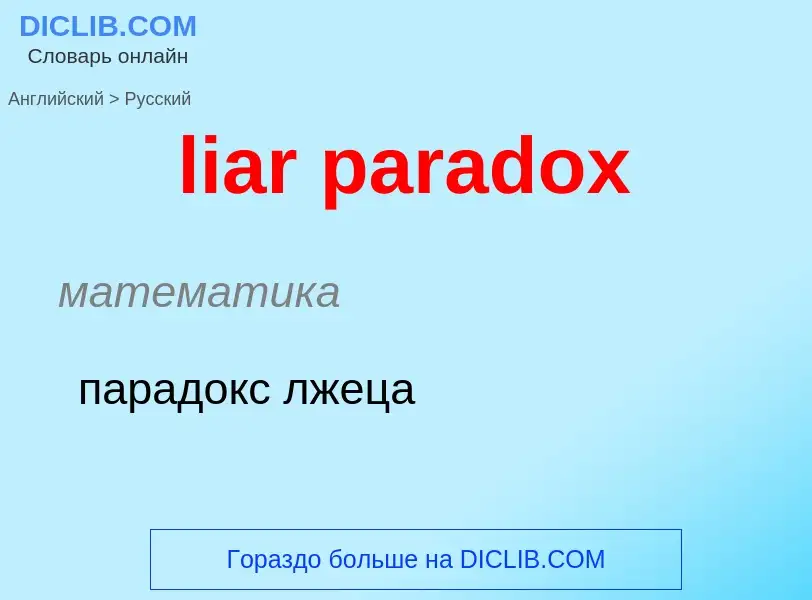Translation and analysis of words by ChatGPT artificial intelligence
On this page you can get a detailed analysis of a word or phrase, produced by the best artificial intelligence technology to date:
- how the word is used
- frequency of use
- it is used more often in oral or written speech
- word translation options
- usage examples (several phrases with translation)
- etymology
liar paradox - translation to russian
математика
парадокс лжеца
математика
парадокс при голосовании
Definition
Wikipedia
In philosophy and logic, the classical liar paradox or liar's paradox or antinomy of the liar is the statement of a liar that they are lying: for instance, declaring that "I am lying". If the liar is indeed lying, then the liar is telling the truth, which means the liar just lied. In "this sentence is a lie" the paradox is strengthened in order to make it amenable to more rigorous logical analysis. It is still generally called the "liar paradox" although abstraction is made precisely from the liar making the statement. Trying to assign to this statement, the strengthened liar, a classical binary truth value leads to a contradiction.
If "this sentence is false" is true, then it is false, but the sentence states that it is false, and if it is false, then it must be true, and so on.




